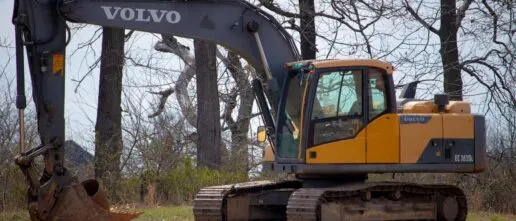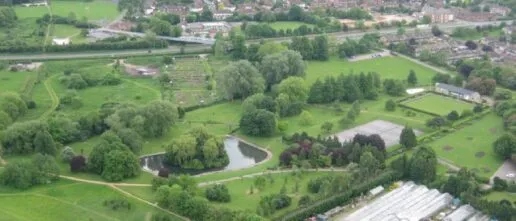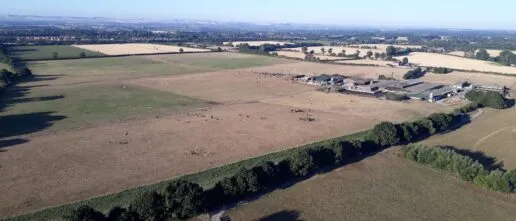I am a Senior Research Associate in the Ecosystems Group at the Environmental Change Institute, where I work within the new Leverhulme Centre for Nature Recovery. I am also a Senior Associate with the Nature-based Solutions Initiative in the Department of Biology.
Related Research Themes

Ecology
Testing the effectiveness of different ecological approaches for nature recovery to support biodiversity and the delivery of ecosystem services such as climate change mitigation and adaptation.

Policy engagement for nature recovery
We work with policy-makers to foster effective approaches to nature recovery, using the Centre's unique evidence-base and compelling stories about nature and its value to society.
Related Projects

Healthy Ecosystem Restoration in Oxfordshire
Developing the local Oxfordshire landscape as a case-study, nature-recovery laboratory and community of practice.

Oxford Policy Engagement Fellowship: Developing a green infrastructure equity tool
A collaborative project with Plymouth City Council and the Woodland Trust to develop and trial a tool to identify neighbourhoods that are socioeconomically deprived and lack access to green space.

Assessing urban ecosystem composition and function to understand pathways towards equitable, Nature-smart cities
Through considering the ecosystem composition and functioning of Greater London, I hope to provide not only a comprehensive analysis of nature of in cities as it currently stands, but I also hope to provide routes to improving nature in these areas based on this.

From greening to wellbeing: Multi-scale analysis of green infrastructure and mental health at population level within the UK
A mixed methods investigation into how green infrastructure influences mental health across diverse communities and landscapes in the UK

Coordinating Research Around Biodiversity Net Gain
At its heart, BNG frames a challenging question: in a world where new housing, workplaces and other land use needs are deemed essential; is it possible to provide this infrastructure without Nature bearing the brunt of the costs?

Equitable distribution of nature-rich accessible green space: An Oxfordshire case study
Investigating the distribution of freely accessible green space in Oxfordshire in relation to socio-economic status to inform local green space planning.

Financing local nature recovery in Oxfordshire
Understanding the scale of the opportunity to fund nature recovery with offsite Biodiversity Net Gain (BNG) payments.

Oxfordshire Treescape Project
Supporting Oxfordshire land managers, parishes and communities with nature recovery planning.

How do we scale up nature-based solutions in the UK?
Working with its partners and stakeholders, this project is assessing the potential for nature-based solutions to contribute to national climate, biodiversity and economic targets, understand the social and practical obstacles to NbS, and strengthen tools and guidance for decision makers. Outputs are aimed at supporting key policy processes including net zero strategy, nature recovery, economic recovery, levelling up and climate change adaptation.
Related Outputs
Consultation response: a biodiversity metric for Scotland’s planning system
This response highlights how a biodiversity metric could support Scotland’s unique habitats and nature. It brings together evidence from the application of a statutory biodiversity metric in England to recommend a revised approach for a Scottish context. It draws on evidence from across the Leverhulme Centre for Nature Recovery’s research community.
Example Opportunity Report
This Treescapes Opportunity Report is an example of a parish report showing existing natural assets, potential locations for nature recovery opportunities (species-rich grassland, woodland, hedgerows, silvo-arable or silvo-pasture, community orchards), and the natural benefits that they could provide. Such reports were provided free of charge to 150 Oxfordshire parish groups and land managers, thanks to […]
Oxfordshire’s greenspace-deprived neighbourhoods
Coordinating author: Martha Crockatt This report explores Natural England’s Green Infrastructure data to identify neighbourhoods in Oxfordshire experiencing both socio-economic deprivation and poor provision of accessible greenspace, with a view to these neighbourhoods being prioritised in terms of planning, allocation of funding, and effort for improving quality and quantity of accessible greenspace. Contributors: Matt Witney […]
HERO Workshop #2 Report: Mapping, Assessment & Tracking of Land Availability & Nature Recovery Activities in Oxfordshire
This second workshop focuses on the second of those priorities: Mapping, assessment and tracking of land availability and nature recovery activities.
A menu of standards for green infrastructure in England: effective and equitable or a race to the bottom?
To help local authorities deliver high quality, multifunctional GI that meets local needs as well as national priorities, Natural England has been developing a framework of GI Principles and Standards in partnership with a broad range of researchers and practitioners.
A mixed methods approach to evaluate community (citizen) science as a tool to support nature’s benefits assessments in the UK: a systematic review and survey of community scientists
Developing methods for valuing nature aim to address biodiversity and environmental crises caused by nature’s undervaluation in decision-making. However, implementing methods to assess nature’s benefits is challenging for a myriad of reasons.
Advancing nature-based solutions through enhanced soil health monitoring in the United Kingdom
This paper examines challenges and opportunities in selecting suitable soil health metrics. We find that standardization can facilitate widespread monitoring of soil health, with benefits for stakeholders and user groups
An integrated approach to above- and below-ground ecological monitoring for nature-based solutions
As the development of nature-based solutions (NbS) increases globally, it is important to ensure that projects meet the objective of benefiting biodiversity, alongside tackling societal challenges. However, most NbS projects do not directly monitor ecological outcomes, and those that do often focus on a limited set of metrics. It is therefore challenging to assess whether projects fulfil the aim of benefiting biodiversity.



